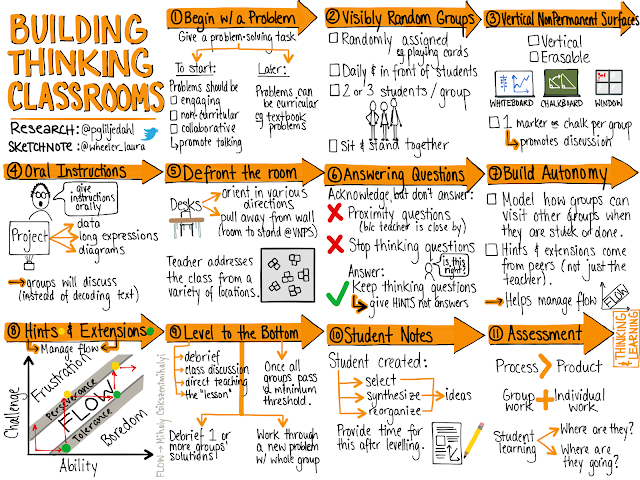Getting Googly - EdTechTeam Ontario Summit: Day 2
Day one left me feeling humble, inspired, connected, and, to be honest, mentally overloaded!
Humbled by the many educators with the courage to share their stories.
Inspired by new tips and tricks to help me 'get my geek on'.
Connected with a greater community of edtech educators both f2f and through social media.
Mentally overloaded due to the sheer quality and quantity of new information presented.
Keynote: Follow Google's formula for innovation with #20time in the classroom
+Kevin Brookhouser
@brookhouser
Wicked problems.
Take a minute and close your eyes. Picture images of wicked problems in our local and global communities.
We can create an environment in our classroom where students see themselves as problem solvers. Allow students to grapple with wicked problems relevant and contextually important to their lives.
Why do students love video games?
It's not because they are lazy.
Kids love video games because they get immediate feedback.
I see this in my classroom with students' engagement in Prodigy math.
Getting beyond 'Functional Fixedness' to facilitate creative problem solving.
Solutions to wicked problems can often be found in unusual places.
How do we motivate wicked problem solvers?
Daniel Pink describes how autonomy, mastery, and purpose affect motivation.
Carrots don't work, therefore grades won't either.
Alfie Kohn's work on student motivation and assessment resonate with me.
http://www.alfiekohn.org/article/degrading-de-grading/So what's the 'educational vehicle' to facilitate all this?
20% Time in the Classroom
20time.org
- Have students take on a challenge of their own choosing
- Blogs to describe the action of creation.
- "Failure is an option, failure to deliver is not."
Find a purpose!
Shift from ...
Teacher centered > Student centered > Audience centered
Session 1: Trees and Branches- Logic Branching in Forms
+Rachel Wente-Chaney
Slide Deck Link
This was a highly interactive session. No time to take notes as I was busy doing!
I created an adaptive math adventure using page breaks and branching in Google Forms. Stay tuned to check it out ... still a work in progress.
Session 2: Creating Collaborative Cultures
+Scott Monahan
Slide Deck
Focusing questions:
What are the benefits of collaboration?
What are the barriers to collaboration?
How do you know you are truly collaborating? (difference between collaboration and cooperation).
Learning is social.
Failure is a part of the learning process.
Cognitive dissonance is a necessary element of collaboration. Become comfortable with being uncomfortable.
Use digital tools to give a voice to all stakeholders. Cultivate relationships and build a culture of shared responsibility.
Session 3: Get More Googly!
Slide Deck
+Michelle Cordy
+Rolland Chidiac
+Jeffrey Humphries
Using Google for Education to provide and entry point for all educators.
GET (Google Education Trainer) - about the tools
GCT (Google Certified Teacher) - about the pedagogy
Ah ha's:
Be an ambassador of innovation.
Connect with PLN.
Tell your story.
Sessions come with lifetime support!
Session 4: Flipping A Primary and Junior Classroom
@MrSoClassroom
Jonathan So's website
Slide Deck
- learning is happening wherever our students are (need for asynchronous and synchronous learning)
- harness that learning ( think past traditional space)
- It's about a culture of learning.
- RAN model
- YOUTUBE
- doctopus extension to add efficiency
Check out Jonathan's website for an extensive array of resources.
Final Thoughts ...
I feel propelled forward.
Looking forward to applying new tips and trick tomorrow!
Remembering what matters most is what I do next!

Comments
Post a Comment